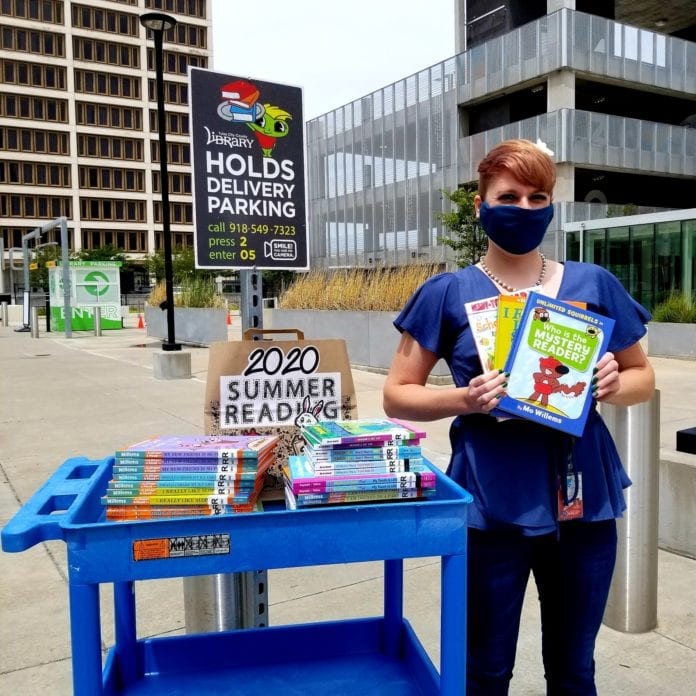
People go to libraries for knowledge and solutions. So, when the COVID-19 pandemic prompted the shutdown of businesses and services in Oklahoma, public libraries also had to shutter their doors — and access.
This meant no story times for kids, no place of solitude for teens to do homework, and no access to important resources for adults.
But the full closures didn’t last long; Oklahoma library systems charged back with progressive ways of making sure people got sanitized library materials in their hands.
The Tulsa City-County Library system, which served 7,000 patrons daily pre-COVID, immediately began increasing its online resources and availability, says Kiley Roberson, chief strategy officer.
The state’s three largest library systems opened with revised hours and limited occupancy, adhering to local and state physical distancing guidelines. They stepped up their curbside pickup services and offered copy, print and fax capabilities. In Tulsa, even 3-D printing pick-up is available at select locations.
“We wanted to help our patrons continue to use our services in a very safe way,” says Roberson. “We wanted their library experiences to continue to be seamless. It’s taken a lot of work to get there.”
The Metropolitan Library System in Oklahoma City also re-opened its 20 locations, branding its new focus on a “grab-and-go” stage, where patrons make brief, in-person visits to pick up their materials.
The Pioneer Library System, which serves Cleveland, McClain and Pottawatomie counties with 12 hometown libraries and other services, also re-opened its locations with limited services.
Because materials can pass through multiple hands, libraries in Oklahoma have utilized American Library Association recommendations for quarantining items after a disinfection process. Tulsa uses a meeting-room space for a 72-hour quarantine of returned materials, says Roberson.
Five branches in the Tulsa system are using an in-branch express service. Masks are required for patrons 5 years old and older. In addition, social-distance protocols are observed, plexiglass barriers are used, one-way browsing aisles are set up, and computers are distanced. Alcohol wipes are provided and computer keyboards and mice are disinfected.
Many of Tulsa’s features — such as ebooks, streaming media, and tutoring — were already popular, says Roberson.
“For us, a few of the things we rolled out were kind of in the works,” she says.
Kim Terry, Metropolitan Library System public relations director, says she’s noticed an uptick in patrons interested in digital choices.
“So far, people seem to like everything we’re doing, but we’re really finding they’re enjoying the online programs,” she says.
Customers served in the Pioneer system can reserve a time slot for public computer use by calling ahead. Pioneer offers its PLS Connect app to access assorted library services and programs.
Tulsa City-County Library introduced a program to provide online hot spots for students in kindergarten through twelfth grade, which is popular for students who have to distance learn but don’t have access to WiFi elsewhere.
The Tulsa and Oklahoma City library systems also offer extended WiFi programs in their library parking lots.
“We’re seeing a lot of use out of that from people just needing access,” says Roberson. “We can’t be open all the time, so we’ve been able to offer [WiFi] to all our customers.”

























